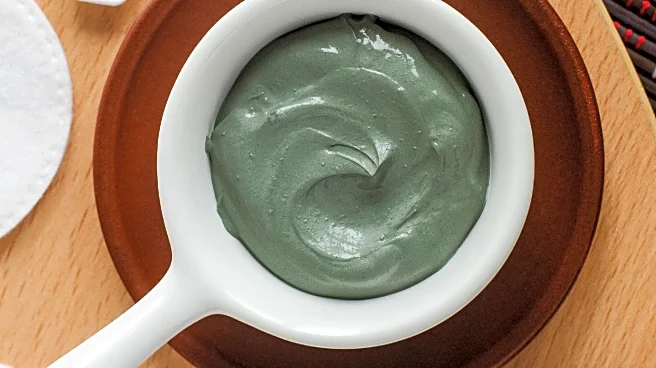What's Happening?
A study published in the journal Cosmetics examines the effects of clay masks on skin oiliness, using red, green, and black clays. Researchers found that while clay masks significantly reduce surface oil, the effect is short-lived, with sebum levels rebounding after removal. The study also highlights the mineral properties of each clay type, noting safety concerns with black clay due to arsenic levels. The findings suggest clay masks are effective for immediate oil control but lack long-term benefits for skin firmness or elasticity.
Why It's Important?
The study provides valuable insights for skincare brands and consumers, emphasizing the need for realistic expectations regarding clay masks. While effective for temporary oil control, the lack of long-term benefits challenges claims of anti-aging or firming effects. This research may prompt brands to refine their formulations and marketing strategies, ensuring product claims align with scientific evidence. The safety concerns with black clay highlight the importance of thorough testing and compliance in ingredient sourcing, impacting industry standards.











